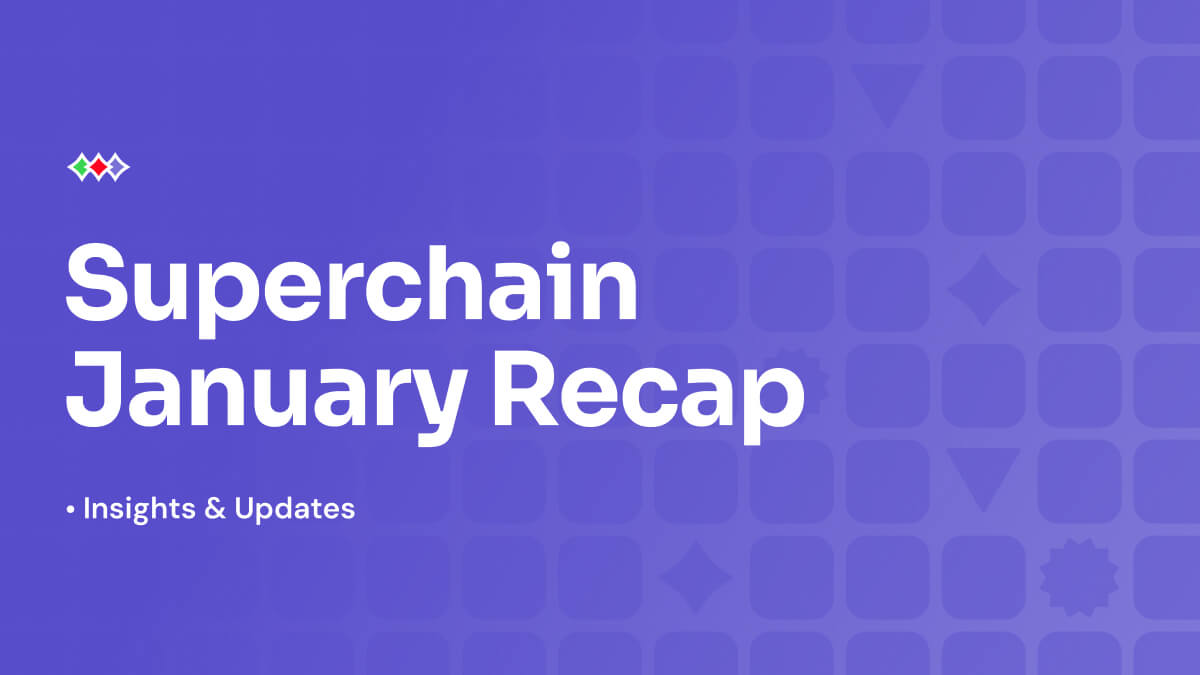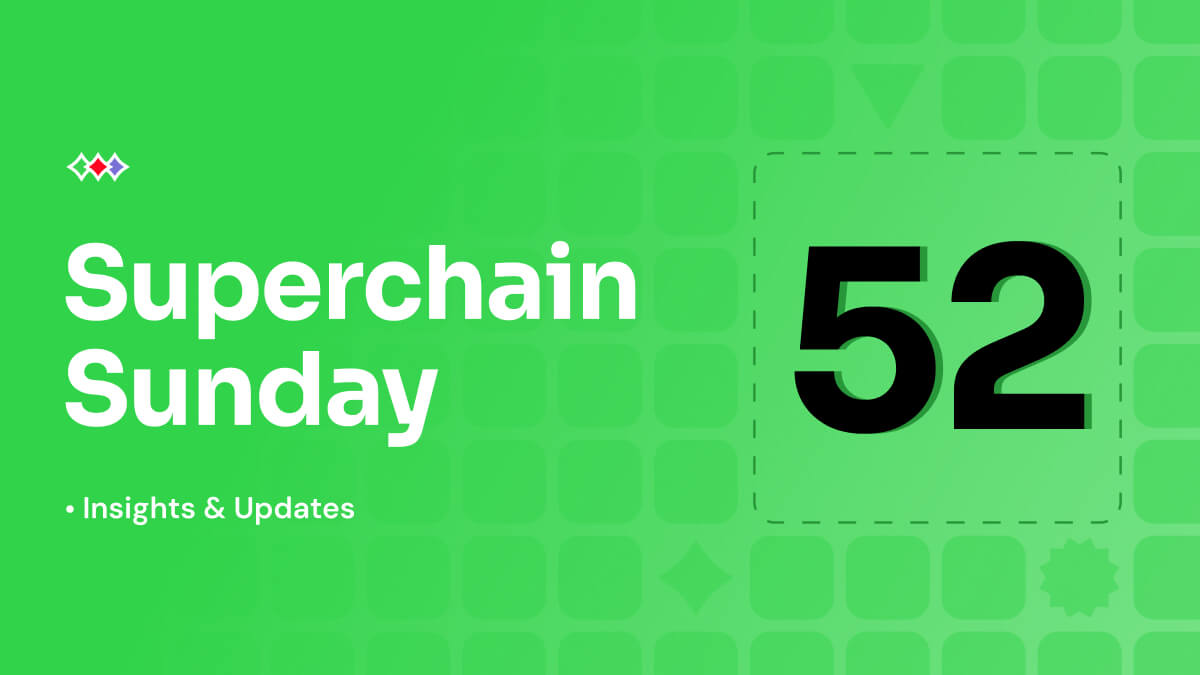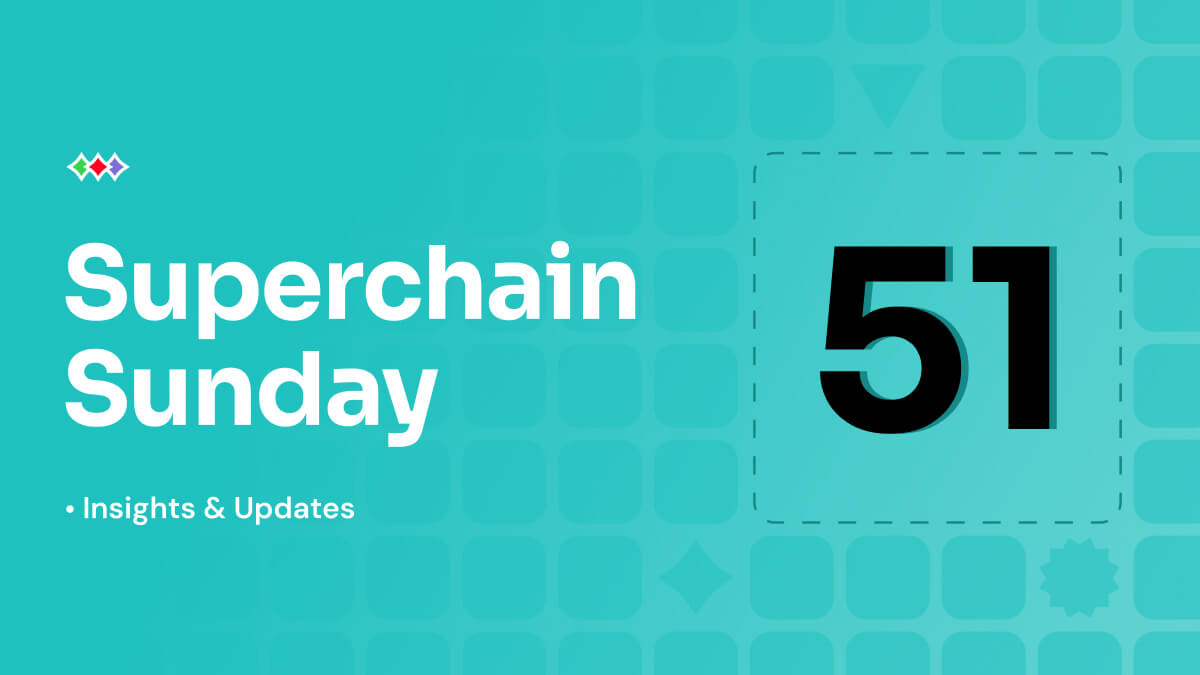Welcome to Superchain Sunday - our weekly newsletter! Every Sunday, we will provide you with the latest news and updates in the world of the Superchain.

The Superchain accounts for over 62.5% of all Layer 2 transactions and sees 18.6M daily transactions. The network boasts 873 Unique Apps, contributing to the Optimism Collective. It is estimated that 46.6 ETH will be contributed to the Optimism Collective in September. Data Fetched from the Superchain Health Dashboard.
Ronin’s governing validators have officially voted to adopt the OP Stack, setting the stage for its return to Ethereum as a Layer 2. The move connects Ronin to a growing network of chains and protocols already powered by the OP Stack, including Base, Ink, Unichain, and World Chain. With over $20B in total assets now secured by this shared infrastructure, Ronin’s upgrade strengthens both its security and its place in the broader Superchain.
As part of the transition, Ronin will inherit Ethereum’s security while introducing block times between 100–200 milliseconds and scaling capacity up to 1M transactions per second. Positioned as Ethereum’s gamification engine, Ronin will be closer than ever to the rest of the Superchain ecosystem, opening new possibilities for games, NFTs, and DeFi. Read more here.
Upbit has launched Giwa, a new Ethereum Layer 2 built on the OP Stack, now live on testnet. Announced at the Upbit D Conference 2025, Giwa targets one second block times with settlement on Ethereum, combining speed with security. The name “Giwa” comes from traditional Korean roof tiles and reflects the chain’s mission to provide Global Infrastructure for Web3 Access, lowering barriers for developers and users.
The network has already processed more than 4 million blocks in testing and will support a Korean won stablecoin that is currently in development. This aligns with South Korea’s push for digital currency adoption. With Upbit handling over $2.25B in daily trading volume and holding around 73% of the local market, Giwa is positioned to become a major pillar in the Superchain, connecting Web3 growth to one of the most active crypto communities worldwide. Read more here.
Mode has launched Trade Tiers, a system that rewards both $MODE stakers and active traders with up to 0% fees and as much as 60% APY on Mode Trade. There are six tiers in total, and you can qualify by either staking MODE or veMODE for stability, or by building up rolling 30-day trading volume for a dynamic boost. The system always locks you into the highest tier you reach.
Climbing tiers means more than just status, it directly reduces trading costs and creates new incentives for long-term participation in the Mode ecosystem. Combined with the AI Quant and Synth’s predictive price data, Trade Tiers aim to give every trader an edge while keeping rewards transparent and accessible. Read more here.
Ink has kicked off the Thunderdome, a head-to-head test of sequencer stacks on its Sepolia testnet. Week one runs with Flashblocks from Flashbots, featuring 250ms block times and verifiable ordering backed by TEEs. Week two brings in Based-OP from Gattaca, using rotating gateways and fast preconfs already aligned with the “becoming based” roadmap. Only one stack will graduate to production.
The competition measures real performance, not vibes: latency, confirmation speed, reorgs, throughput, and decentralization roadmaps. Ink’s goal is to prove to the Superchain that faster, permissionless sequencing is not theoretical but ready to be tested in live conditions. Full results will be published for transparency. Read more here.
The Optimism Grants Council has published its Cycle 41 Report, marking the first completed cycle of Season 8. Out of 19 growth applications reviewed, 40acres.finance secured approval for 200,000 OP, while Intraverse (30,000 OP) was declined. Seventeen other submissions remain under review, with applicants receiving feedback to address before moving forward. In total, nearly 3M OP was requested, but only 200K OP was allocated this round, leaving roughly 6.09M OP still available from the 6.29M OP Season 8 budget.
As an adjustment period for the new season, Cycle 41 focused on refining processes and integrating fresh infrastructure. The Council adopted a continuous review system, ensuring every application was considered regardless of submission timing. The newly deployed AI evaluator successfully filtered and scored proposals based on governance intents, Superchain alignment, and OP distribution ratios, while the Karma GAP platform streamlined backend operations and powered the launch of opgrants.io. The Council emphasized a cautious start on approvals to attract more applications and shape incentive structures for incoming enterprises. Read more here.
The Superchain has grown to 33 different OP Chains, each with its flourishing Ecosystem. These are some extra stories to make your Sunday that much more Super.





